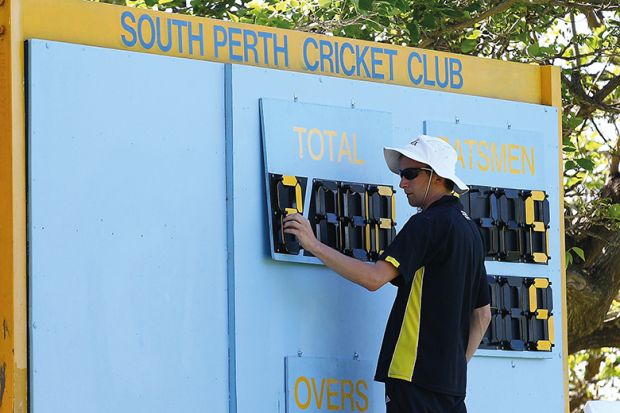Perennially disadvantaged by funding rules geared towards public universities, Australia’s independent colleges hope things will change after the biggest re-evaluation of higher education policy in 15 years.
The government’s rhetoric about its “accord”, the terms of reference of which were due to be announced this month, has focused squarely on universities. But private-sector representatives do not expect to be sidelined from what education minister Jason Clare has described as a “reset”.
Independent Tertiary Education Council Australia said it was “increasingly confident” about being engaged in the process. “Ninety per cent of the students are with public universities, and the bulk of the research certainly happens there, but they’re not the only game in town,” said chief executive Troy Williams.
Independent Higher Education Australia, which called for strategic reform of tertiary education ahead of the May election, said it was “delighted” that its members would be included in what it understood to be a “comprehensive review” of higher education.
Chief executive Peter Hendy said independent providers endured funding “anomalies” and a bigger regulatory burden than public universities. “We’re going to get an opportunity to put a case next year to get these things fixed.”
Scores of private institutions collectively educate one in 10 higher education students in Australia, often notching up much higher satisfaction ratings than public universities. Seventeen independent colleges and two private universities outperformed the best-ranked public university on overall satisfaction in the latest Student Experience Survey.
Independent providers also outclassed public universities on overall employer satisfaction, earning rankings an average 3.4 percentage points higher. Nevertheless, when the government allocated funding for an additional 20,000 undergraduate places in disciplines with workforce shortages, all but a handful of independent colleges were left out.
Most are ineligible for the commonwealth supported places funding, which subsidises undergraduate courses. And while private college students have been spared a 20 per cent fee on their tuition loans during the pandemic, that charge is set to apply again from January.
Exacerbating matters, private colleges say they will be disproportionately affected by the Tertiary Education Quality and Standards Agency’s proposal to cover most of its running costs by ramping up its fees. This includes phasing in a new registration charge of between A$29,000 and A$32,000 (£16,000-£18,000) a year for every institution, regardless of its size.
Independent institutions say there is no clear provision for future increases to be externally reviewed, and that Teqsa is not obliged to operate within its own processing time frames. Representative bodies want better service commitments as a quid pro quo for the fee hikes, calling for a “service obligation charter” or clearly articulated customer service standards. “I don’t think Teqsa appreciates that when you move to full cost recovery, the relationship changes,” Mr Williams said.
“When organisations are paying for an activity, it’s not unreasonable for them to expect it to be completed in a particular time frame. I don’t think culturally Teqsa has quite got its head in that space yet.”
Teqsa said it expected to update its service charter “in due course”. It said it would review its cost recovery model each year and consult the sector about fee changes.
Providers with fewer than 5,000 students will also receive discounts of up to 70 per cent for course accreditation and re-accreditation fees. But universities, as self-accrediting bodies, do not incur these fees.




